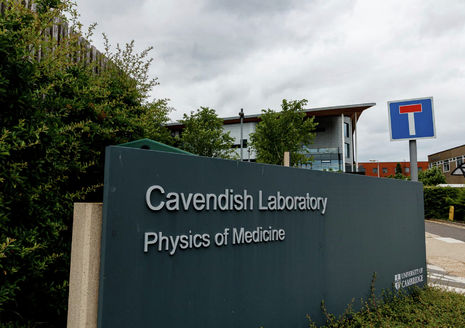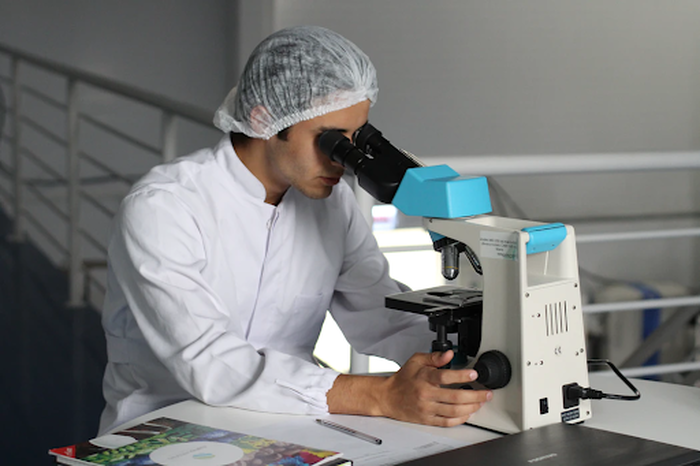Cambridge researcher becomes second woman to be awarded prestigious Royal Society medal
Professor Dame Jocelyn Bell Burnell has been awarded the Royal Society’s Copley Medal, the world’s oldest scientific prize, for her groundbreaking work in the 1960s

Cambridge researcher Professor Dame Jocelyn Bell Burnell has been awarded the Royal Society’s prestigious Copley Medal, the world’s oldest scientific prize. She is the second woman to be awarded the prize.
Bell Burnell was awarded for her work on pulsars in the 1960s which she carried out as a postgraduate at Murray Edwards College (then New Hall). She joins Charles Darwin and Albert Einstein as a recipient of the medal.
Dame Jocelyn said: “I am delighted to be the recipient of this year’s Copley Medal, a prize which has been awarded to so many incredible scientists.
“With many more women having successful careers in science, and gaining recognition for their transformational work, I hope there will be many more female Copley winners in the near future.
She added: “I hope that my work and presence as a senior woman in science continues to encourage more women to pursue scientific careers”.
Bell Burnell has been recognised by the Royal Society along with eleven other former and current Cambridge researchers, including six women.
Royal society medals recognise “exceptional research and outstanding contributions to science.”
“I hope that my work and presence as a senior woman in science continues to encourage more women to pursue scientific careers”
Dame Jocelyn will donate her £25,000 prize money to the Institute of Physics’ Bell Burnell Graduate Scholarship Fund, which provides grants to physics graduate students from under-represented backgrounds.
Three female scientists who are currently working at Cambridge have also been recognised in the 2021 awards. This includes Professor Sadaf Farooqi from the MRC Metabolic Diseases Unit who received the Croonian Medal and Lecture, along with Sir Stephen O’Rahilly, for their findings on the control of human body weight, which has led to new diagnostics and therapies.
Dr Serena Nik-Zainal from the MRC Cancer Unit received the Francis Crick Medal and Lecture, for her analyses of mutation signatures in cancer genomes, which is now being applied to cancer therapy.
Professor Anne Ferguson-Smith from the Department of Genetics, who is also the University’s Pro-Vice-Chancellor for Research, was awarded the Buchanan Medal for her work in epigenetics, genomic imprinting, the interplay between the genome and epigenome, and the effect of genetic and environmental influences on development and human diseases.
Professor Michelle Simmons, former Cavendish Laboratory Research Fellow, won the Bakerian Medal and Lecture for her contributions to the understanding of nature at the atomic-scale through her creation of a sequence of “world-first” quantum electronic devices in which individual atoms control device behaviour.
Professor Frances Kirwan, alumna and Honorary Fellow of Clare College, was awarded the Sylvester Medal for her research on quotients in algebraic geometry, and Dr Sjors Scheres from the MRC Laboratory of Molecular Biology won the Leeuwenhoek Medal and Lecture for his innovations in image analysis and reconstruction methods in electron cryo-microscopy.
Emeritus Professor Michael Green from the Department of Applied Mathematics and Theoretical Physics won Royal Medal A for “crucial and influential contributions” to the development of string theory over an extended period.
The Royal Society’s President, Sir Adrian Smith, said: “Through its medals and awards the Royal Society recognises those researchers and science communicators who have played a critical part in expanding our understanding of the world around us.
“From advancing vaccine development to catching the first glimpses of distant pulsars, these discoveries shape our societies, answer fundamental questions and open new avenues for exploration.”
 News / University Council rescinds University Centre membership20 February 2026
News / University Council rescinds University Centre membership20 February 2026 News / Hundreds of Cambridge academics demand vote on fate of vet course20 February 2026
News / Hundreds of Cambridge academics demand vote on fate of vet course20 February 2026 News / Judge Business School advisor resigns over Epstein and Andrew links18 February 2026
News / Judge Business School advisor resigns over Epstein and Andrew links18 February 2026 News / Union cancels event with Sri Lankan politician after Tamil societies express ‘profound outrage’20 February 2026
News / Union cancels event with Sri Lankan politician after Tamil societies express ‘profound outrage’20 February 2026 News / Caius students fail to pass Pride flag proposal20 February 2026
News / Caius students fail to pass Pride flag proposal20 February 2026











